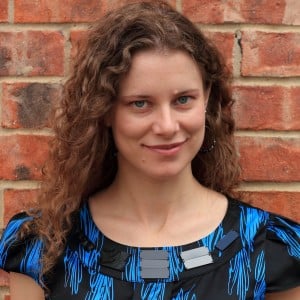Wondering if grad school is right for you? This week, we’re putting together a guide to the grad school experience, brought to you by those who know it best: current students and recent alums. Check in all week for an inside look at med school, law school, PhD programs, and more!
If you’re in marketing, finance, IT, or operations, and have your eye on a C-level office someday, you’ve probably considered business school. Today, we heard from two current students and a recent alum and got the scoop on the admissions process, classes and group projects, and their post-grad plans.
School: UT Dallas
Program: MBA, Part-Time Professional Program
Age: 27
Undergrad: BBA, Marketing, University of North Texas
Background Before Grad School: Full-time marketing positions and freelance marketing consultant
Career Goal: Become the department head of marketing for a large organization
Why did you choose to get an MBA?
I researched the positions that I wanted to attain when I reached about 10 years of experience, and nearly all of them required or preferred the MBA. Further, the MBA is a more versatile degree for an industry track vs. a master's degree in marketing, which leads to a more academic career.
Why did you choose UT?
UT Dallas has a well-ranked part-time program, flexible class schedule, and excellent location. It also has the option to complete classes online, which was particularly helpful, as I knew I planned to move back to California if the right opportunity arose.
What tips do you have for someone applying to business school?
Apply early! Take the GMAT early! The GMAT score is good for five years, so if you've just finished undergrad and you already know you're planning to attend business school, get the GMAT out of the way while your math skills are still fresh. Also, it's much easier to arrange your schedule to accommodate a full-time job if you have several months to prioritize the projects.
What’s been your favorite part of the experience so far?
It's been wonderful to get back into the academic space, and it's really jump-started my ideas when I head back into the office. There's much less noise in the academic world, so you can really come up with creative solutions and handle different types of problems than you do in the workplace. Then, you're ready to hit the ground running once you go back into the office. I love the explosion of ideas that comes from a great class session, and the ability to immediately take the classroom experience into the real world the next day.
What’s been the most challenging part?
It's very difficult to keep up the mental stamina. I've always been a busy person, so the time management isn't as difficult, but the background stress and mental space is challenging to control. I've been taking back-to-back semesters, so I've only had a couple of weeks of down time. It can put a lot of stress on your relationships and your body to have your mind so full all the time.
What does your typical week look like?
I work from 8 AM-5 PM, then make the 30-minute drive to campus for class from 6-10 or 7-10 (depending on the length of the semester), two days each week. On days when I don't have class, I try to make time for the gym, chores, personal relationships, and of course, homework! The MBA requires a lot of group projects with multiple milestones, so I usually end up on the computer doing research, writing papers, or compiling slides for the projects. I make a point to take one weekend day completely off from any school responsibilities, and I've found that I'm able to keep pace with my work by breaking it into chunks during the week.
What are your ideal post-graduation plans?
I'm excited to say that I've already accepted a dream job. I'll be handling all aspects of marketing for my company, and I'll be managing people, which is exactly what the MBA has prepared me to do.
Have your post-graduation plans changed since you first started grad school?
My post-graduation plans have been accelerated, but I went in with a very clear path in mind, so my plans have not changed. I did a lot of research prior to starting grad school, so I nailed down the plans and steps. The MBA is not the most fun degree, but it is a very practical degree. If you want fun, go deeper in your chosen subject area, but if you're looking for a well-rounded degree for the future, the MBA is an excellent choice.
School: MIT Sloan School of Management
Age: 30
Undergrad: BS in Industrial Engineering and Operations Research, University of California, Berkeley
Background Before Grad School: Directly out of undergrad, I worked as an IT Systems Analyst at a consulting firm for 2.5 years, focusing on order and warehouse management programs. I then moved to an internal IT role at a cosmetic company as a Senior Business Analyst. There, I was the business partner to the direct-to-consumer sales and marketing group, which included the customer service and e-commerce teams. I worked there for three years before applying to graduate school.
Career Goal: To become a C-level executive in operations or information technology for a consumer products and e-commerce company
Activities/Extra-curriculars: At MIT Sloan, I was co-chair of the LGO internship committee helping to organize internships and interviews between current students and the program’s partner companies. I was also an active member of SWIM (Sloan Women in Management) and the Sloan Ski and Snowboard club.
Why did you choose this type of degree?
I had always planned on getting an MBA eventually. But after working in IT for five years, I knew it was a functional area that I really liked, so I began to look at MBA programs that focused on technology and operations. A dual degree seemed like a great idea—I could earn two masters’ in two years. There were several programs I looked into, including the MMM Program at Kellogg and University of Michigan’s Tauber Institute for Global Operations.
Why did you decide on MIT?
The Leaders for Global Operations (LGO) Program is truly distinct: A collaborative venture between the MIT School of Engineering, the MIT Sloan School of Management, and a select group of industry partners, it gives its students a unique combination of academic theory from world-renowned faculty and a true experiential learning though a six-month internship. In two years, you earn an MBA and MS in Engineering, and because of the wonderful relationship the program has with its industry partner, the LGO fellowship covers a substantial portion of every student’s tuition. Once I got in, how could I say no?
After I got in to LGO, however, I realized it was so much more. Yes, I learned truly applicable techniques in operations management. But through LGO’s leadership curriculum, I have not only gained a great internal perspective and desire to grow as a leader, but also the skills to manage and develop the people who work for me.
I would especially encourage women with an interest in operations and a background in engineering or science to apply to the LGO program. The industry has been historically male dominated, and I think women’s instinctual ability to multitask and be organized gives a fresh perspective to the field.
What tips do you have for someone applying to your program?
1. This is true for any graduate program—know what you want to do and what you want to get out of the program beforehand. Grad school is not a back-up plan for people who cannot make up their mind about their careers; it is for people who know exactly what they want to do and are willing to take that extra step to get there. Sure, an MBA program is a great opportunity to try new things and take classes in subjects with which you are not familiar. But to get the most out of your time (and money), you should really know what you want to do. This will not only help you get in to the LGO program, because you can focus your essays and interviews on these goals, but it will also help you choose classes and clubs and be recruited for internships and jobs.
2. Get recommendations from someone who really knows you and what you are capable of. Having the CEO give some blanket statement about you does not carry nearly as much weight as a peer who truly knows and respects your work.
3. Sign up for the newsletter, follow our bloggers, and reach out! The best part of the LGO program and MIT Sloan is the alumni network and administration. Alumni will be more than happy and willing to talk to you about the program and your qualifications. I know I am!
What’s been your favorite part of the experience so far?
Hands down, the people I have met. The LGO community is like a family. Not only are the alumni involved, they are also a wonderful network for career advice and mentorship. Additionally, many classmates have become my good friends. The MIT Sloan network is world-class—I feel privileged to have been classmates with so many ambitious, smart, and fun people.
What’s been the most challenging part?
Time management. I was bombarded with homework, team projects, networking events, and extra-curricular activities, and I wanted to participate in everything. But since that is physically impossible, I had to learn how to manage my time efficiently and prioritize everything. That included balancing my personal life with academics and a career. As a woman who plans on being a working mom and wife someday, I learned from my time at graduate school how important good time management is. I could not survive without it.
What are your next career steps?
I have taken a job with an online retailer as an Operations Manager as part of a leadership development program. My employer has a wonderful leadership philosophy that compliments its long-term thinking and fast-paced environment all for the betterment of the customer experience. And as a long-time user of its website, I am excited to be a part of it. I would not have gotten this opportunity, nor would I be able to succeed in my current position, without the teachings of the LGO program and the network of LGO and MIT Sloan.
School: MIT Sloan School of Management
Program: MBA, Entrepreneurship & Innovation Track
Age: 27
Undergrad: Duke University, BA Public Policy & Economics
Background Before Grad School: Prior to MIT Sloan, I worked in management consulting as a Senior Associate Consultant at Bain & Company in the Zurich and Atlanta offices. After Bain, I joined Small Enterprise Assistance Funds (SEAF), an impact investor based in DC, as a Business Development Manager. At SEAF, I focused on new initiatives such as developing several SME risk capital funds investing in Poland/Qatar/Caucasus and leading the organization’s five-year strategic plan.
Career Goal: I am deeply passionate about the outdoors (e.g. backcountry skiing, mountaineering, climbing, surfing) as well as entrepreneurship. My ultimate career goal is to start my own outdoor sports company that will help people lead better, more fulfilling, and purpose-driven lives.
Activities/Extra-curriculars: The Entrepreneurship & Innovation Club; Student Entrepreneurs for International Development (SEID), where I’ve worked with a community based foundation in Thailand on growing its silk scarf business; AvaTech, where I’m launching a startup related to anti-avalanche technology with a Sloan classmate—we’re entering MIT’s $100K pitch contest next week!); and the Retail & CPG club, Sloan Ski/Snowboard Club, and MIT Outing Club.
Why did you choose your program?
When I was applying to business schools, I knew I wanted a program truly focused on “doing things”—not just learning business management theory. As someone that learns best through hands-on experience, I knew MIT Sloan was an ideal school for me. For example, MIT is full of action learning opportunities that allow students to get out of the classroom and work with real-world problems. I’ve already seen this first hand by getting involved with several startups, working with a foundation in Thailand via SEID, and doing a consulting project with the local zoo. There are many other action learning opportunities I hope to pursue while I am at Sloan, including Global Entrepreneurship Lab, Innovation Teams, and International Study Treks.
I also chose Sloan because of the exceptional diversity and small size of the community. Simply put, my classmates are phenomenal! Every time I meet someone new, I am so impressed and humbled by their past accomplishments and bold plans for the future. My core study group of six hails from Europe, Asia, Latin America, Canada, and the U.S.—not to mention all of us come from different work backgrounds. And finally, at just above 400 students in our class, the community is incredibly tight but also just large enough that it will likely take us the full two years to get to know everyone in the class.
What’s been your favorite part of the experience so far?
My favorite part of the experience so far has been diving headfirst into the entrepreneurial ecosystem at MIT. What’s amazing about this place is that entrepreneurship and innovation is so pervasive—it seems like everyone here, whether or not they want to start their own business, possesses an internal fire to do something great for this world. This energy is truly inspiring.
As part of the entrepreneurship and innovation track, I have also been fortunate to meet many impressive entrepreneurs from the classes ahead of me. With over 26,000 active MIT companies employing 3.3 million people around the world, there is certainly no shortage. Within the first week of class, there were numerous events such as the Hackathon (a weekend long event dedicated to proposing ideas, forming teams across MIT, and “starting something”), Demo Day (pitch presentations from the hottest MIT startups, many of which had already received funding), and various entrepreneur panels. I am just one of dozens of classmates that are already working on launching their own ventures, and we just started school a month ago. Maybe there’s something in the water.
Finally, I’m amazed at the resources available to entrepreneurs. It’s well known that diverse teams tend to be more successful. At Sloan, we are fortunate to be able to work with dynamic, innovative students and professors from across all the MIT schools. There’s no question this sets Sloan apart in ways I did not imagine when I was applying.
What’s been the biggest surprise?
What has been most surprising to me is just how busy (good busy) business school is. Every single day, you are faced with dozens of opportunities. Should you go see the Dalai Lama give a speech at the MIT Center for Ethics, attend a Brazil Club kick-off party, finish that Social Impact Board Fellows application, meet a CEO visiting from the energy industry, or depart on a trek to Iceland? You find out very quickly that you have to make tradeoffs. Overall, I’m amazed at the infinite possibilities to explore your interests and passions at this place. But I guess that’s what MIT Sloan is all about—at the end of the day, you are given the power to make those choices and create your own unique experience.




